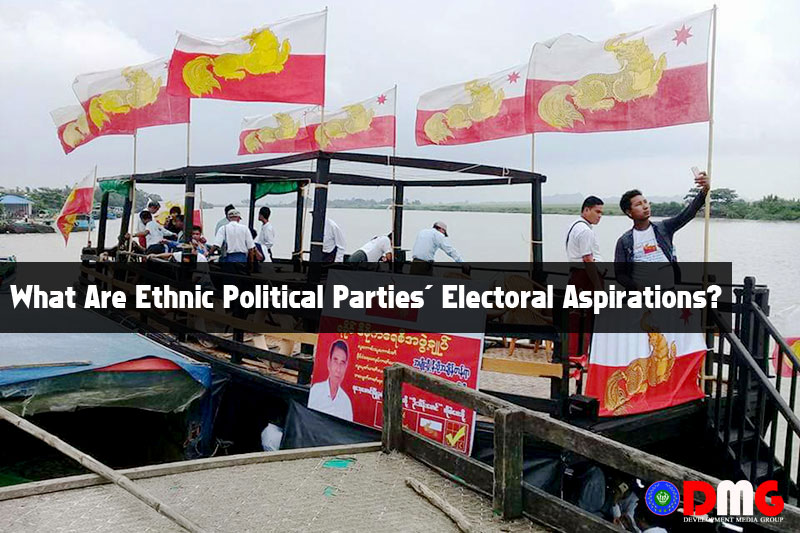- 15 mass casualty incidents from regime airstrikes reported in Arakan State since 2023
- Kyaukphyu IDPs forced to flee again amid junta airstrikes and artillery attacks
- New Diplomatic Movements Between Bangladesh’s New Government and the Arakan Public Administration
- Junta claims over 24 million ballots cast in 2025 poll, cites strong youth turnout
- ULA expands HIV prevention, healthcare services for sex workers in AA-held areas
What Are Ethnic Political Parties’ Electoral Aspirations?
Campaigning is underway in Myanmar as Election Day draws nearer. We can see clear differences between the campaigning of the big political parties vying for seats nationwide and the campaigning of ethnic political parties contesting seats based on geography and ethnic identities.
15 Sep 2020

By Kyaw Htet Aung | DMG
Campaigning is underway in Myanmar as Election Day draws nearer. We can see clear differences between the campaigning of the big political parties vying for seats nationwide and the campaigning of ethnic political parties contesting seats based on geography and ethnic identities.
Ethnic political parties tend to canvass voters with appeals to identity and promises to fight for the rights of ethnic minorities. Meanwhile, the major parties aiming to form the government are campaigning on a broad array of topics, such as peace, socioeconomic development, national reconciliation and democracy — including civilian-military relations and amending the 2008 Constitution.
Thus, ethnic political parties can be deemed to be positioning to put pressure politically on the new government that will take office based on the results of the 2020 election, presenting their demands as being in the best interests of the region or ethnic group they claim to represent.
But the political landscapes in Arakan and Shan states prove that that idea does not necessarily yield concrete results. In 2015, ethnic parties won the most seats in both states, but the parties were not able to leverage their electoral success in order to form regional governments in either case.
Looking ahead to the next government term from 2021-2026, ethnic political parties seem to think they can achieve their demands by applying collaborative political pressure. But political parties claiming to represent constituents in ethnic regions have different backgrounds and priorities, and need to envisage that it will be difficult to reach common agreement on relevant political, economic and social affairs.
For the major parties, to be able to form the government is the main objective, and constraints to socioeconomic development are seen as institutional and technological problems, rather than political problems.
The ruling party has to work under complex political and economic contexts, being limited by the Constitution and ongoing armed conflicts involving a host of different groups. But they need to know that the situation can lead to political growth.
The ruling party should accept the opinions of the ethnic political parties and negotiate with them with respect to their political representation so that the power dynamics will further the creation of a democratic federal union, as is expected.
The ruling party should not put pressure on ethnic political parties over differing opinions by using its administrative and legislative power because it will bring effects detrimental to establishing a democractic federal union.
- Kyaw Htet Aung is a Yangon-based political economy researcher and programme coordinator of Burma News International (BNI) – Myanmar Peace Monitor.








.jpg)











